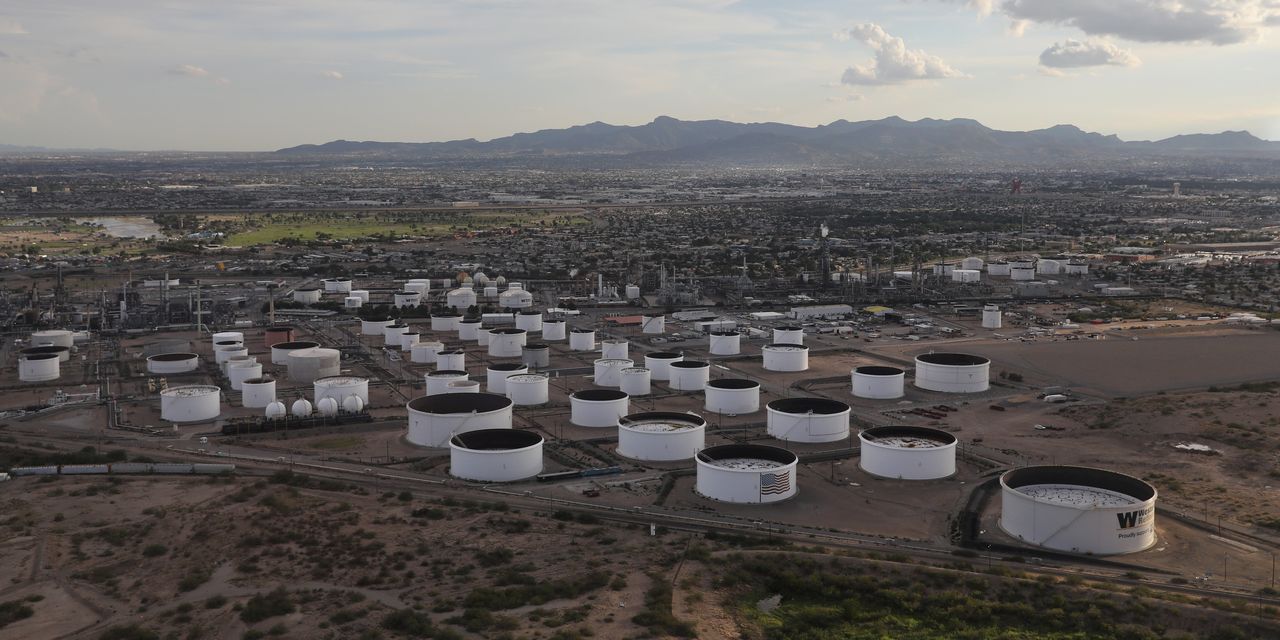Commodity prices have suffered an overall decline so far this year, with a recent “de-stocking,” or decline in physical inventories, potentially giving way to strong gains in the sector if the economy avoids a recession, said economists at Goldman Sachs.
Mounting concerns over the health of the financial sector, U.S. debt ceiling risks, fears of an impending demand slowdown in the West, and a disappointing recovery in China in April have contributed to “fears of an upcoming U.S. or global recession,” the Goldman Sachs economists, lead by Jeffrey Currie, wrote in a note dated Tuesday.
“The bottom line is markets have cashed in on their insurance policies in the form of physical and financial hedges,” they said. “On net, that leaves the entire complex exposed to upside should recessionary risks not materialize.”
“ “The bottom line is markets have cashed in on their insurance policies in the form of physical and financial hedges. On net, that leaves the entire complex exposed to upside should recessionary risks no materialize.” ”
From a portfolio perspective, this also “makes a strategic commodity allocation a very good hedge,” they said.
In Wednesday dealings, the S&P GSCI
SPGSCI,
a benchmark for investments in the commodity markets, was trading more than 10% lower year to date after posting gains in each of the past two years, FactSet data show.
Goldman Sachs forecast a return of 30.3% in the S&P GSCI on a 12-month horizon.
“Commodities and rate markets have priced in a recession, while equities have only priced in the positive aspects of that outcome via lower interest rates and lower commodity prices,” the Goldman economists said. The absence of a recession “would likely lead to higher oil and commodity prices, as well as higher rates, to which equities would likely react poorly.”
The physical de-stocking in the commodities markets, which Goldman Sachs sees as “likely the largest commodity de-stocking the complex has ever witnessed,” is not irrational if a U.S. recession over the next year is expected, the economists said.
“Recessionary concerns, higher rates, and healing in global goods supply chains have led to a broad de-stocking of wholesale goods and inputs,” the Goldman economists said.
While markets put the chance of a U.S. recession at 55%, Goldman Sachs puts it at 35%.
Western manufacturing demand for metals has been weak but like oil, strong emerging markets demand has been “offsetting that weakness keeping inventory levels low,” said the Goldman economists.
At the same time, recessionary concerns have resulted in commodity prices that are lower than what fundamentals would suggest, they said. For oil, they estimate that at around $10 to $15 a barrel and for copper
HGN23,
around $1,000 per metric ton.
Making a reference to the hand game known as “rock paper scissors”, the Goldman economists said “paper”, or speculative positioning in financial commodities, is currently beating “rock”, which is represented by commodity fundamentals. In the hand game, “paper” can cover and take a win over “rock”.
However, barring a global recession, the “rock”, or fundamentals, should beat “paper” thereby “creating an unwind of the significant build up in short” positions, the economists said.
“Evidence” in commodities supports “stronger, not weaker, demand,” they said. For oil
CL.1,
CLN23,
in particular, the International Energy Agency and other forecasters, including Goldman Sachs, have “steadily increased” oil demand growth forecasts this year.
Given that 70% of oil demand is tied to the service sector of economies in the West and China, where there is still “plenty of room to rise back to trend,” such strong growth in oil demand should be expected into the end of this year,” the Goldman economists said.
For natural gas
NGM23,
current lower prices, restocking, and above-consensus economic activity is likely to lead to “sequentially rising demand,” they said.
Read: Natural-gas prices have dropped by nearly half this year, despite output risks and higher demand prospects
Read the full article here


